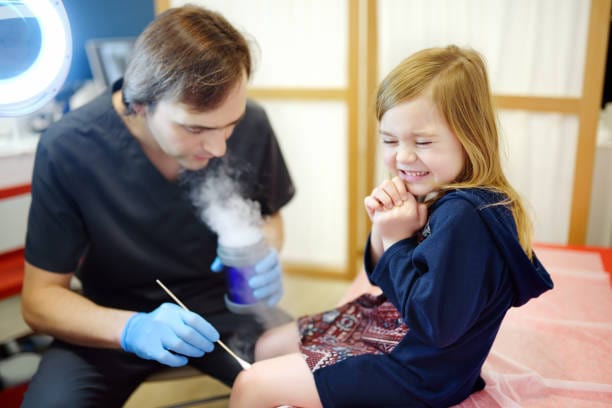
Experts can treat verrucas with over-the-counter applications and even clinical treatments. Some verrucas can sometimes go away on their own, whereas they may take several months or years to go away completely and require more rigorous treatment. Various procedures, such as cryotherapy, laser treatment, or electroProcedure, give a better chance to remove verrucas faster and with less pain if the verrucas are deeply ingrained.
This article will help you better understand verrucas, including their causes, signs and symptoms, and available treatments. It will also help you determine the best way to treat this foot problem. If you have a verruca, it is advisable to have it professionally removed at a reliable clinic such as Revitalise London.
What Causes Verrucas?
Verrucas are a virus-related condition and are known to be caused by HPV types 1, 2 and 4. This virus also affects the skin’s outer surface and stimulates the growth of cells, resulting in the development of a harsh and rough skin outgrowth known as a wart. Even if one is exposed to the HPV virus, contaminated skin tags do not always result from it since there are several other forms of the virus. This depends on the state of the skin, the immune system, and previous exposure to such conditions.
How Do Verrucas Spread?
HPV prefers warm and moist body parts and public places such as wash-over baths, swimming pools, showering areas, and gymnasium floors. This virus penetrates the skin through cracks and is easily found on the feet due to bare dancing. Sharing socks, shoes, or towels with an contaminated person increases the chance of contracting the verruca.
Who Is at Higher Risk?
However, although some people are at a higher risk than others, anyone can get verrucas.
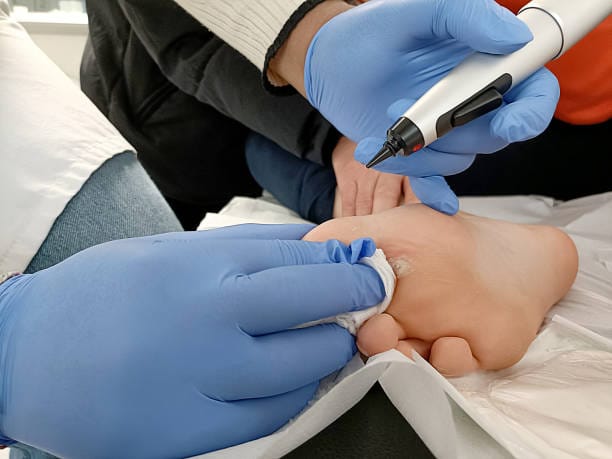
Many children and teenagers have not fully developed their immune systems, so they tend to be affected easily.
Public showers and swimming pools and people who train in gyms—Swimming and training are activities carried out in gyms and pools, which are mostly public, thus increasing the chances the individual has of contacting them.
Those with compromised immunity – Verrucas are also difficult to treat if an individual suffers from conditions such as diabetes, eczema or any other form of compromised immunity.
People with vulvar injuries – Those with injured feet are more vulnerable to HPV since cuts, blisters, and dry skin allow the virus to penetrate the body easily.
Whereas some verrucas can be cleared within a few months, others take as many years. Once contracted, it is not easily detected by the body’s immune system, making it difficult to fight it off naturally. Further, constant pressure on the foot will likely bury the verruca deeper into the skin and may be more difficult to cure.
Without knowing the cause and risk factors of verrucas, it may be difficult to prevent and effectively eliminate them.
Common Symptoms and How to Identify Verrucas
However, verrucas are almost the same, appearing like calluses or other problems that individuals face on their feet. However, they have different symptoms. Early detection of a verruca will enable you to seek the most appropriate remedy for the disease and avoid its spread.
Key Symptoms of Verrucas
- Shaping and roughness—Verrucas usually have a coarse, random surface and are raised in height from the skin surface.
- Black specks are clotted blood vessels observed in the verruca with the appearance of black speckles.
- Pain or tenderness – Verrucas are painful when an individual is in motion while walking or standing.
- Interference with natural skin lines—unlike corn, verrucas do not respect the natural pattern of the skin.
- Frame overgrowth—A layer of harder skin may overgrow the verruca due to pressure from walking.
Where Do Verrucas Appear?
Verrucas commonly develop on the parts of the feet that bear most of the body’s weight, such as:
- Heels—This pressure on the skin may cause the growth of verrucas to protrude further, causing more pain.
- Spreading and multiplication – Verrucas can be spread or even produced through walking and running on these balls of the feet.
- Toes—Due to the warm and moist environment at the bottom of the toes, verruca thrives here.
Understanding verruca treatment: How to Distinguish?
- Verrucas may be black with interrupted skin lines,
- Verrucae are tender to the touch,
- Verrucas may exist in groups, which are called mosaic warts.
If these symptoms are present, understanding verruca treatment becomes easier. Stick on to learn about the various options for treating verruca, whether through home remedies or professional help.
Verruca Treatment Options: From Home Remedies to Professional Care
Often, verrucas do not require treatment and will disappear by themselves. However, people opt for treatment to speed up the process and relieve pain. Depending on the extent of the verruca, it can be treated at home or even through medical procedures.
At-Home Verruca Treatments
For the mild kind of verrucas, there are remedies that the person can purchase over the counter:
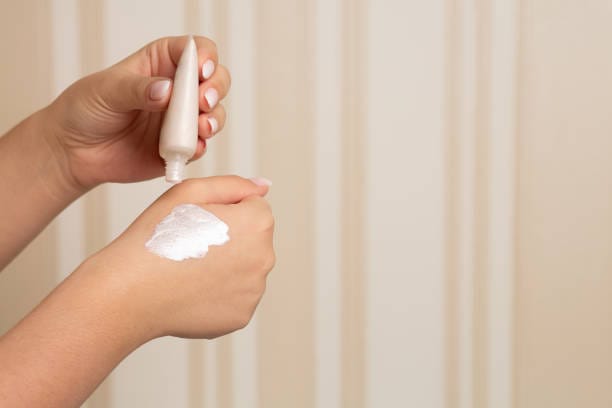
Salicylic Acid is another constituent found in verruca treatments. It weakens the wart tissue. It is most effective when used daily in soaked and filed verruca cases.
Duct Tape—Some individuals just cover the verruca with duct tape in the hope that the virus will suffocate to death. However, this method has mixed success.
Apple Cider Vinegar and tea Tree Oil have antiviral properties, but the effects they will produce are not guaranteed.
Chemists can easily obtain this. It comes in packages and helps freeze the verruca, though it is less effective than professional cryotherapy.
Professional Verruca Treatments
Professional treatments can solve the problem of hard and painful verrucas much faster and more effectively.
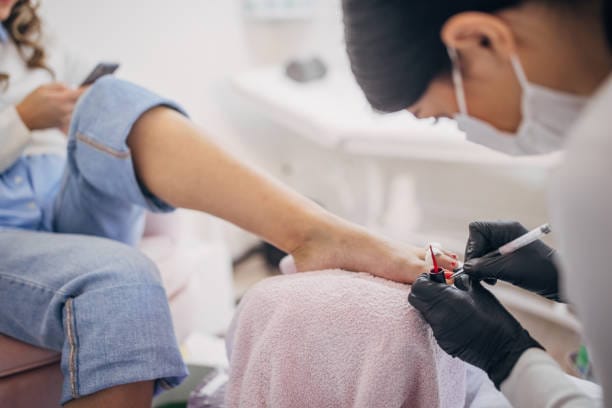
Cryotherapy (Freezing): A clinician freezes the verruca using liquid nitrogen, which forms a blister and eventually falls off. This is quite an ordinary and straightforward treatment.
Laser Verruca Removal—This technique uses laser light directed at the verruca, denying it the opportunity to grow as it will not have a blood supply. It is suitable for chronic or long-standing verrucas.
ElectroProcedure—The verruca is shaved and burned electrically. This method is very convenient, fast, and most suitable for severe acne.
Stronger Acid Solutions—Another method of verruca treatment in a clinic involves using concentrations of acids that can penetrate the skin’s layers.
The management process mostly depends on the verruca’s size, location, and chronicity. When home treatments do not help, consulting a professional treatment will help treat verruca.
Aftercare: Ensuring a Smooth Recovery After Verruca Treatment
Hence, the healing procedures after verruca treatment are as important as the treatment itself. The skin does not heal quickly initially, and the verruca may grow again. Here are the recommended measures to take to recover and avoid a relapse.
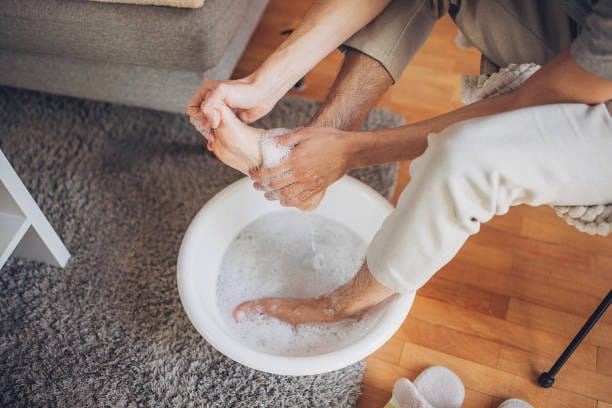
Skin Care After Chemical Peel Treatment
As is the case, the first few days are vital when a patient undergoes treatment. Avoid contamination by ensuring that the area is clean and free from moisture. You must wash the feet with mild soap and warm water, and it is advisable also to dry the feet gently. If you have had verruca cryotherapy, laser treatment, or Procedure, there is a high chance that the expert will advise you to cover it with a sterile dressing. Do not scratch the affected skin area – this hinders healing and spreads the virus to other foot areas.
Lotions and creams can help prevent further dryness and cracking; however, do not apply creams directly to the treated area, as this can hinder the skin’s healing process.
Managing Pain and Discomfort
Still, if the verruca is large or deep, pain or soreness is usual after treatment. However, it will likely be a bit sore, sensitive, or inflamed, especially around the operated area. In case of a sore throat, a mild painkiller such as ibuprofen or paracetamol, available at a local store, can be taken.
Walking may be painful if you have a verruca on the sole of your foot. Avoid applying too much pressure to the area to prevent further discomfort, and wear soft, cushioned shoes.
Preventing Verrucas from Coming Back
After having paid the price to have a verruca removed, the next thing that needs to be done is to prevent it from recurring. Verrucas are caused by the HPV virus that is known to be secreted in warm and damp places; therefore, ensure you;
- Wash socks and shoes often to eliminate any remaining virus from the item.
- Do not go outside barefoot, especially to areas such as the swimming pool, gym, and shared shower—wear slippers or flip-flops.
- Do not wear wet socks; try wearing comfortable shoes that allow the feet to breathe.
The healing phase depends on the treated areas, but most affected areas will heal within several weeks. If you experience redness, swelling, or signs of Disease, or if the verruca is recurring, consult a physician.
How to Prevent Verrucas After Treatment
That is why, besides removing a verruca, preventing it from returning is just as crucial. Verrucas are caused by a certain strain of the human papillomavirus, which thrives in warm and damp conditions. If you want your feet to be protected from reDisease, follow these tips and steps to ensure you do not get a fungal Disease again.
Maintain Good Foot Hygiene
Commonly, clean feet do not get verrucas. Remove your shoes, wash your feet with gentle soap and warm water, and thoroughly dry them, especially between the toes. Verrucas are common in wet areas; therefore, ensure your feet are always dry.
If you sweat a lot, using powder for fungal Diseases or wearing dry socks to reduce moisture levels is advisable. Wearing a new pair of socks also helps; changing them, particularly after exercise, is also very beneficial.
These include showering facilities, swimming pool facilities and lock-in changing rooms at the gym, which are well-known habitats of HPV. In order not to fall sick with the virus, one should:
It is always advised not to walk in dirty areas with bare feet but to wear flip-flops or shower shoes.
This is especially important if you plan to swim or engage in other water-related activities. After washing your feet with water, ensure that they dry well.
This is true because verrucas can be passed through direct contact, such as when sharing towels, socks, or shoes.
Boost Your Immune System
This is because a healthy immune system can resist HPV before it leads to the development of another verruca. Proper nutrition, foods with vitamins and antioxidants, and adequate fluids and sleep also aid in this. If you are prone to verruca, taking multivitamins such as vitamin C and zinc is recommended.
Check Your Feet Regularly
Moreover, it is also important to point out that early detection of a verruca makes the treatment process much easier. Check your feet regularly, especially if you are prone to verrucas and must deal with them frequently. If you see a small area of the skin that is slightly scaly or tiny black pinhead dots, do not hesitate to apply over-the-counter medication or consult a doctor.
It is therefore important to follow these steps to minimise the likelihood of getting verrucas on your feet again and have smooth feet. If you sense the formation of a verruca despite the measures you have taken, you should seek treatment immediately to avoid the growth of the verruca.
Understanding Verruca Treatment: When to Seek Professional Help for Verrucas
Though some verrucas will heal on their own or with the help of remedies available at home, sometimes verrucas are very persistent and may need a doctor’s attention. Then again, what are the determining factors when one must see a specialist?
If Home Treatments Aren’t Working
OTC products like salicylic acid or freezers may help eliminate warts, but they are ineffective on all patients. This is the case when, after some weeks, you have been treating the verruca, and it fails to respond.
If the verruca is large, a dermatologist should be consulted for a more effective treatment, including cryotherapy, laser therapy, or minor Procedure.
If your verruca is getting bigger or spreading across a large area, then it may be best to choose Procedure or combination therapy with other treatment options.
Verrucas are not localized in one place before the appearance of this disease. Visiting a specialist will prevent the spread of several verrucas appearing on the feet or the one present starting to grow in size, becoming painful or inflaming.
A growing verruca might be an Disease beyond topical verruca treatment and may not be amenable to topical treatments. A specialist is the most appropriate person to help eradicate it safely and avoid its spread.
If You Experience Pain or Discomfort
Some verrucas, particularly those found on pressure areas of the foot, cause discomfort. Consult a specialist if you feel pain while walking, running, or even standing. They can offer treatment options to ensure you get relief much faster and can move comfortably.
Verruca are warts that can be painful and significantly impact a person’s lifestyle, especially when they develop on the feet, making it difficult for the patient to walk or stand comfortably.
Professional verruca treatment is faster and more efficient if the home remedies do not work. Therefore, a specialist will suggest different treatments based on the extent of the verruca.
Cryotherapy (Freezing Treatment)
Cryotherapy is the most common treatment for verrucas. A specialist uses liquid nitrogen to freeze the verruca, causing the skin to thin and ultimately develop a blister that disintegrates. This treatment is very fast in some cases, but normally, the verrucas would have to be treated repetitively. It may well be painful, especially for deep verrucas.
Laser Verruca Removal
Laser treatment is sometimes useful, especially for large or chronic verrucas. The laser is used to work on the area of the verruca to cut off its blood circulation, thereby causing the verruca to dry up. Although it gives a very good result, this method includes pain in and after the process.
Salicylic Acid Treatment
Salicylic acid is also found in over-the-counter preparations, but stronger formulations can be procured only on prescription. These solutions assist in a slow process of weakening the verruca and helping the body’s immunity combat the virus. Full results may take several weeks, if not more.
Treatments Verruca Removal
A doctor may advise minor Treatments procedures even for large, painful, or long-to-clear verrucae. These may include shaving the verruca with a scalpel or using electrocautery (burning the verruca off using electric currents). Procedure is the last option, and it may slightly scar the skin.
Every verruca treatment has its advantages and disadvantages. This work indicated that the choice of treatment depends on the verruca’s size, depth, and duration. It will also assist the patient in seeking the right advice from a specialist on which strategy to employ that will give the fastest solution.
Why Choose Revitalise London for Verruca Treatment?
Revitalise London offers various treatments, including verruca treatments, and we ensure that the treatments offered are appropriate for the patient. Whether you have a resistant plantar verruca or need a quick and efficient removal, our staff has the most up-to-date and efficacious methods used in clinical practice.
We have developed the latest techniques, including cryotherapy, laser therapy, needling, and minor Procedure, to make the procedures safe and effective. Most of our treatments aim to reduce pain as much as possible, shorten the time it takes to recover, and avoid a repeat of the same in the future.
At Revitalise London Clinic, we believe in an individual approach to every client. During the consultation, we evaluate your verruca and determine which is appropriate for your skin and daily activities. Trusted by many and staffed with efficient equipment and highly skilled personnel, you are in the right place.
